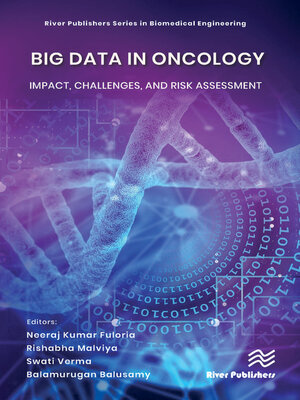Big Data in Oncology
ebook ∣ Impact, Challenges, and Risk Assessment · River Publishers Series in Biomedical Engineering
By Neeraj Kumar Fuloria

Sign up to save your library
With an OverDrive account, you can save your favorite libraries for at-a-glance information about availability. Find out more about OverDrive accounts.
Find this title in Libby, the library reading app by OverDrive.



Search for a digital library with this title
Title found at these libraries:
| Library Name | Distance |
|---|---|
| Loading... |
We are in the era of large-scale science. In oncology there is a huge number of data sets grouping information on cancer genomes, transcriptomes, clinical data, and more. The challenge of big data in cancer is to integrate all this diversity of data collected into a unique platform that can be analyzed, leading to the generation of readable files. The possibility of harnessing information from all the accumulated data leads to an improvement in cancer patient treatment and outcome. Solving the big data problem in oncology has multiple facets. Big data in Oncology: Impact, Challenges, and Risk Assessment brings together insights from emerging sophisticated information and communication technologies such as artificial intelligence, data science, and big data analytics for cancer management.
This book focuses on targeted disease treatment using big data analytics. It provides information about targeted treatment in oncology, challenges and application of big data in cancer therapy.
The most targeted or relevant audience is academics, research scholars, health care professionals, hospital management, pharmaceutical chemists, the biomedical industry, software engineers and IT professionals.







